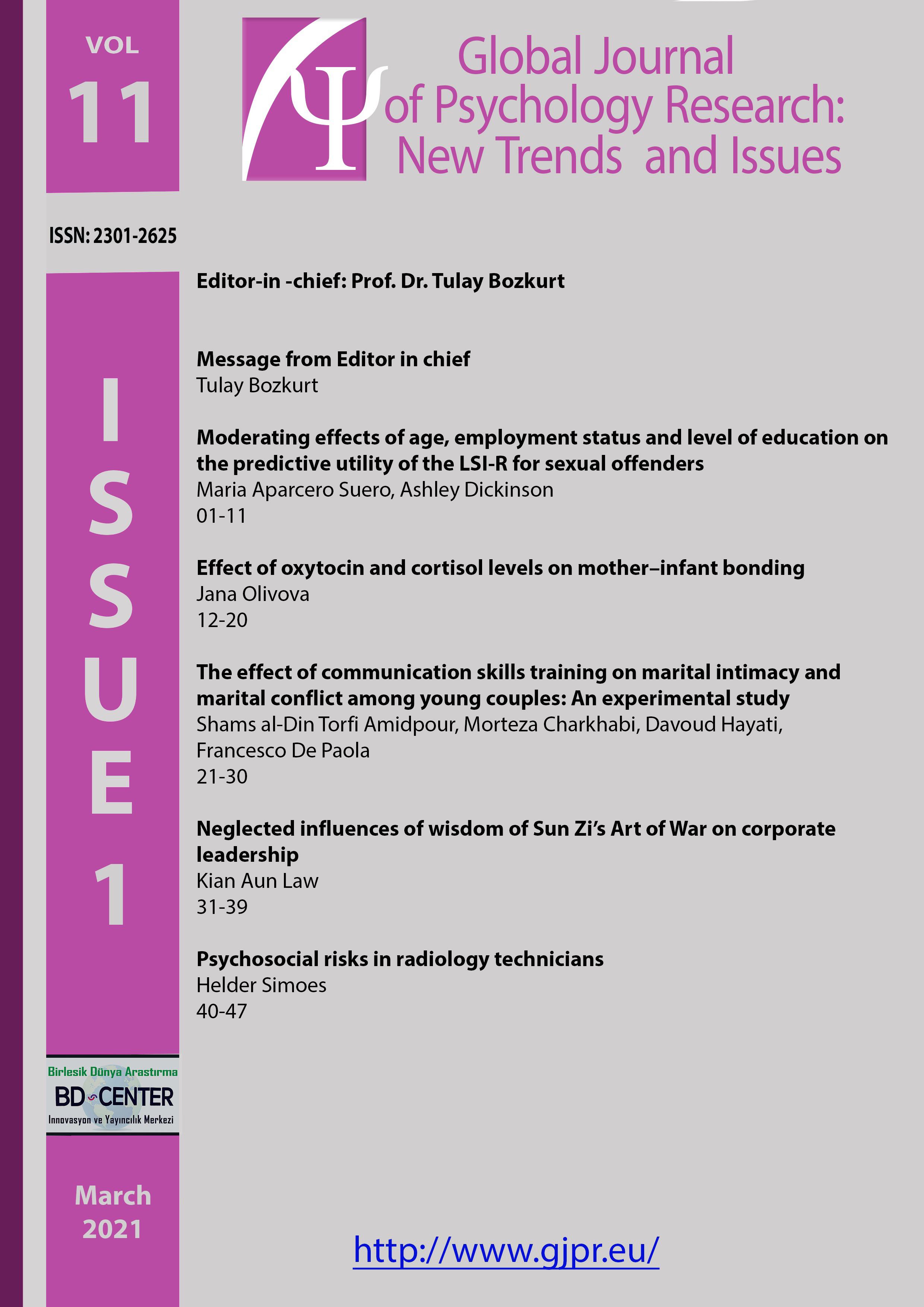Effect of oxytocin and cortisol levels on mother–infant bonding
Main Article Content
Abstract
Oxytocin (OT) has been associated with mother–infant bonding, while cortisol levels have been associated with stressful response. The objective of this study was to explore the possible correlation between OT and cortisol levels and mother–infant quality of bonding. OT and cortisol levels were measured using urine and saliva tests. Maternal bonding was measured by observation and a post-partum bonding questionnaire. Our results, using a group of 29 mother–infant healthy dyads, found no correlation between OT and the nurturing condition, but we found positive correlations between OT and the expressed feelings of mothers towards their infants, as well as a negative correlation between cortisol and less intense bonding feelings (feel afraid or resents infant). Understanding the association between mother and infant bonding interactions and induced hormones should be a valuable tool for paediatricians and psychologist in promoting behaviours that will benefit future adult behaviour and society at large.
Keywords: Oxytocin, cortisol, mother, infant bonding, effect.
Downloads
Article Details

This work is licensed under a Creative Commons Attribution 4.0 International License.
